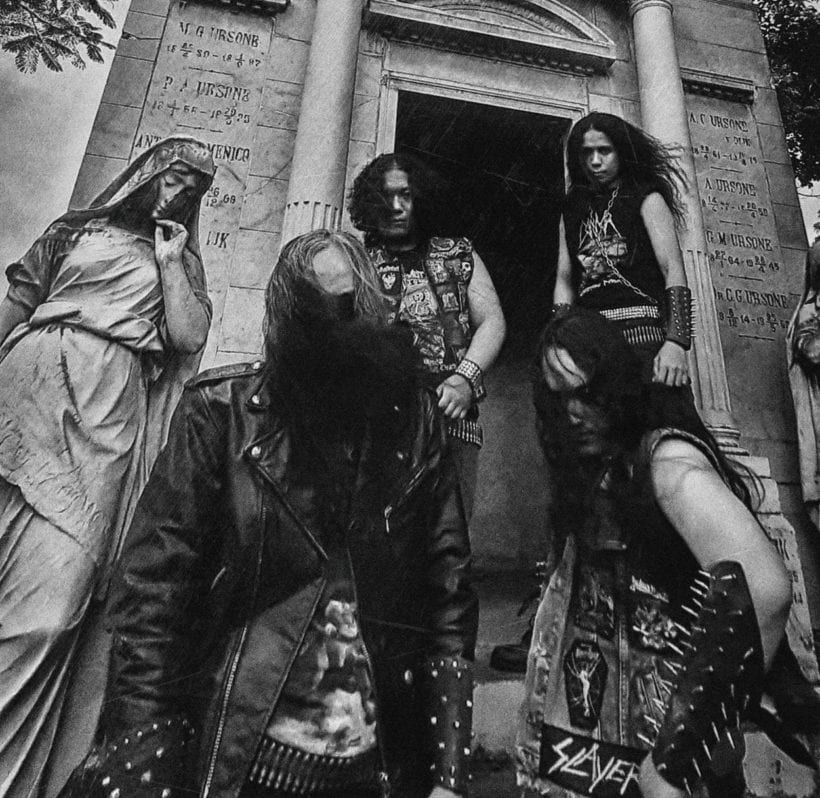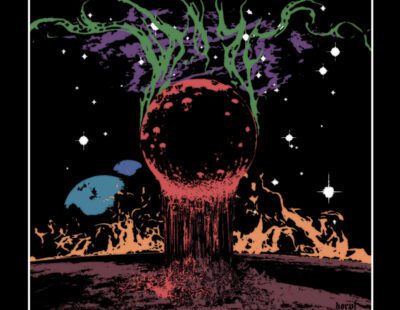
Hailing all the way from Indonesia — from Bandung, West Java to be exact — black-scarred thrash metallers Spellforger have arrived to bridge the gap between Sodom, Aura Noir, and Bulldozer. Comprised of Middernacht (vocals), Lord Tchort (drums), Horrifier (bass), and Invoker (guitars), the bullet-belt/leather jacket-wearing quartet only formed in 2020, and yet here they are with their debut EP Upholders of Evil (Personal Records) that feels as relevant now than it probably would’ve had it been released in 1987. Rumor from the grave has it that the group’s first song, “Pestilentia,” was recorded three weeks after Spellforger formed, and that they didn’t even rehearse it.
Spontaneity (and quality) is Spellforger’s charm on Upholders of Evil. They have that just-formed feel but execute their black/thrash with aplomb, as if they were born to with spiked gauntlets, long-ass hair, and the will to kill (with music). Indeed, what sets Spellforger apart from the rest of the Indonesian pack — OK, let’s also include Pure Wrath, Vallendusk, and Choria — is their spiritual quest away from the brutal, slam-infused death metal that’s so popular in country. As the PR for Spellforger states, Upholders of Evil is a “fresh blast of old air,” just out of the corpse’s mouth. Ninja pit moves and palm muted riffs be damned!
Say Spellforger via ancient telegraph to Decibel: “Musically, we are highly influenced by several types of metal genres, even though the core sound of Spellforger is obviously thrash. But there is no denying that old-school death and black metal became a major influences of this song. In terms of a lyrical theme, this song is directly inspired by the story of Anneliese who got possessed and tormented to death by a malicious entity that we called The Lord of Possession (aka “the Devil”). The rest of the lyrical content here is a completely made-up story. The song is less than four minutes long, but the writing process of this song has been the most difficult and stressful of all our other songs, musically and lyrically.”







